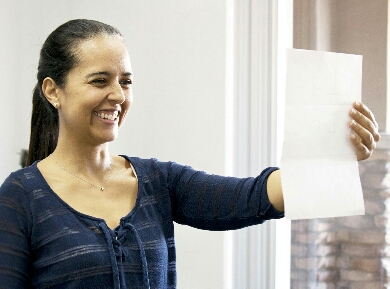
Nearsightedness,often referred to as myopia, is the most common reason people under 40 visit the eye doctor. The visits usually result in glasses that correct the blurriness far away (the board and roadsigns). The glasses, more specifically compensatory glasses, solves the issue of blurriness far away but when the glasses are removed, things still look blurry. Most people undergo continuing deterioration once they start wearing such compensatory glasses.
Contrary to most thinking, myopia is one of the most preventable conditions. When the cause of the condition is addressed, nearsightedness can be eliminated in many cases. The progression of myopia can be stabilized and slowed down when total elimination is not possible.
The vision care we provide routinely in our office almost inevitably result in myopia control. The glasses and contact lenses we prescribe are always designed to protect the visual system while providing the best overall vision in all distances. We use a combination of therapeutic glasses, contact lenses, and vision therapy to help control nearsightedness.
Other things to know is that our visual system was not designed for prolonged near work which is so common in today's culture. The primary purpose of the visual system is to direct action; movement is critical for our health and development. When we are stuck at one viewing distance such as the phone, computer, or book, our eyes gets very tired. Nearsightedness does run in families but how we interact with our environment have a lot to do with it too. Some people are better able to withstand the stress than others. Others end up with myopia, and without proper visual care, the condition can get worse very quickly.
To find an optometrist that can manage myopia, look for behavioral/developmental optometrist or visit www.oepf.org to find a doctor near you.